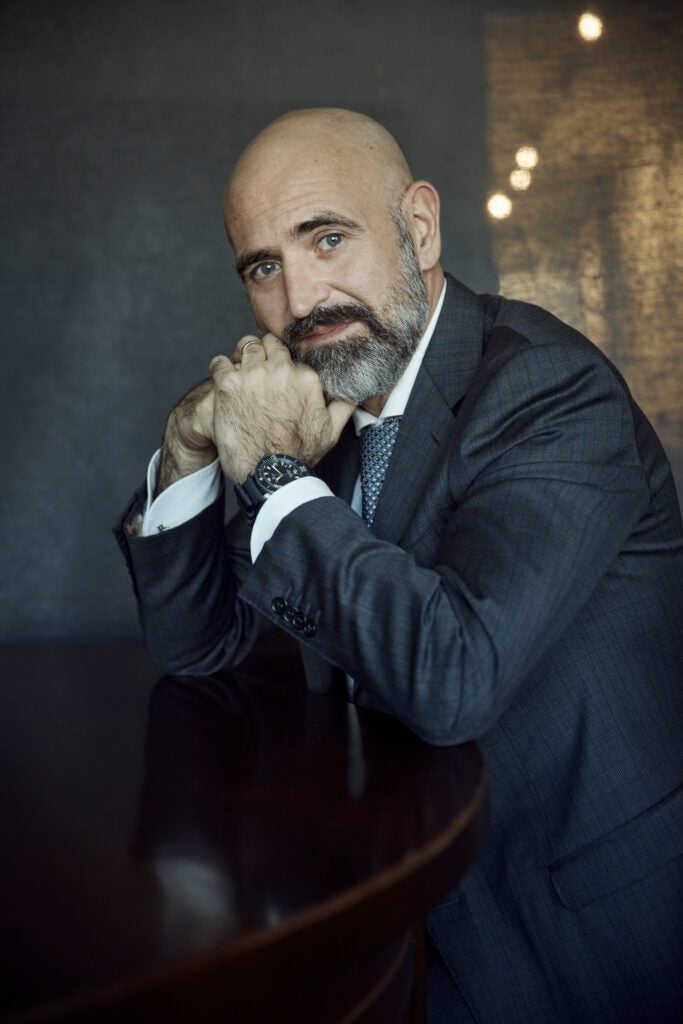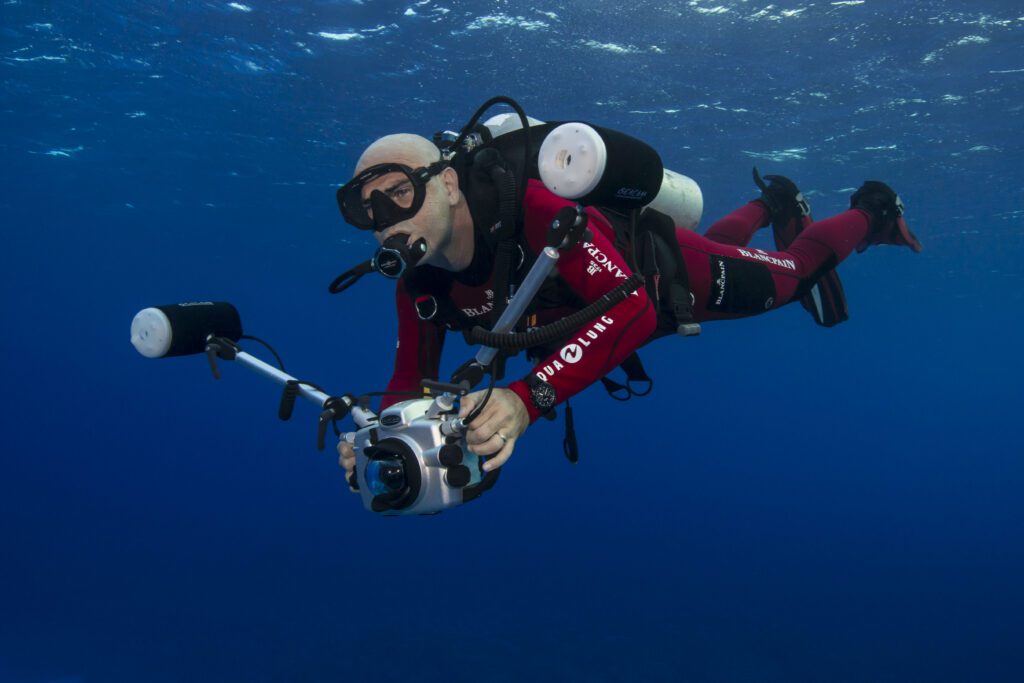February 21, 2023
Supporter Spotlight: Marc Hayek, President and CEO of Blancpain, on why the time to act for the oceans is now
BY: Anna Baxter
Since he was a child, Marc Hayek has been amazed by the ocean, with its beauty and mysteries waiting to be discovered below the surface. Now, as an avid diver and CEO of Swiss luxury watchmaker Blancpain, Hayek has created and nurtures the Blancpain Ocean Commitment, an ocean exploration and conservation initiative. “The ocean is the cradle of life and the key for our survival. Its health is vital to ensure a future for our children,” Hayek said.

Since the 1953 birth of Blancpain’s Fifty Fathoms watch, the world’s first modern diving watch, the company wasted no time connecting with the world’s oceans and the communities dedicated to their preservation. Through the Blancpain Ocean Commitment, Blancpain provides a platform to raise awareness of ocean issues, supports multiple ocean conservation initiatives around the globe, and has co-financed dozens of exploratory missions, including 21 major scientific expeditions, such as recent Oceana expeditions to the Alacranes and Bajos del Norte reefs in Mexico. To date, Blancpain has contributed to the establishment of more than 4.7 million square kilometers of marine protected areas (MPAs).
“Exploration is essential because we still know very little about the ocean. The deep sea is not easily accessible and therefore barely explored, but shallow and mesophotic areas also remain poorly known,” Hayek said. “You first need to know what to preserve and how to preserve it to be able to ensure efficient conservation efforts.”
In a recent expedition to Alacranes Reef, the largest reef in the southern Gulf of Mexico, Oceana and Blancpain found evidence of illegal fishing, diseased corals, and possible signs of overfishing, all worrying conditions that threaten Mexico’s rich biodiversity. Despite these concerning findings, the team also identified some previously undocumented species and the recolonization of elkhorn coral, a species that builds refuge and feeding areas for other marine life, suggesting that this reef can thrive under further protection.
“Almost every expedition we have supported has allowed us to discover or document new species. Some of these species are critically endangered, and we risk losing them before even knowing about their existence. It is imperative for humankind to be aware of the consequences of species destruction and ecosystems imbalance.”
As a passionate diver, ocean conservationist, and underwater photographer, Hayek has spent hours
at sea witnessing the threats marine life and ocean habitats face without proper protections and oversight. Hayek says poor management of industrial fishing fleets is leading to intense collateral damage.
“Too many fish and habitats, such as seagrass beds, are destroyed by industrial fishing,” Hayek said, pointing especially to bottom trawling, a highly destructive fishing practice that can clear-cut seafloors. “Fishing should be better regulated and controlled, in a
strictly equivalent way in all countries and by neutral organizations.”

Moving forward, Blancpain, under Hayek’s leadership, hopes to continue using findings from its expeditions to establish long-lasting protections for marine life and habitats, like creating more MPAs and ensuring they are effectively managed.
“We have done a lot of work in raising awareness of the beauty of the ocean and exploring the underwater world. These two components are still at the center of our preoccupations, but it’s now time to take a step forward. Because after awareness and understanding comes action,” Hayek added.
As the world’s largest organization dedicated solely to ocean conservation, Oceana has an impressive power and impact of communication and action. Oceana has also been instrumental in deploying initiatives such as Global Fishing Watch, which provides open-source data to researchers and to the public. It is an ideal partner to achieve concrete results.”
This article originally appeared in the Winter 2022 issue of Oceana Magazine.



